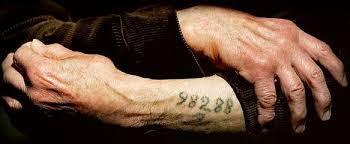Washington – The Jewish Federations of North America (JFNA) today hailed Congress for bolstering nonprofit security funding from $25 million to $60 million, and for doubling assistance for Holocaust survivors from $2.5 million to $5 million in the pending spending package for fiscal year 2018.
Last night, Congress released the text of the Consolidated Appropriations Act, 2018 (“the Omnibus Bill”). Its passage, widely expected by Friday night, will keep the government operating for the remainder of the fiscal year. Included in the bill are increased allocations for the Department of Homeland Security (DHS) Nonprofit Security Grant Program (NSGP) and the Department of Health and Human Services (DHHS) Administration for Community Living’s Holocaust Survivor Assistance Program, which bolster the social services work and security efforts of Jewish Federations.
Additionally, JFNA applauds the decision to provide $120 million for the Emergency Food and Shelter Program; to provide the U.S. State Department’s Office of the Special Envoy to Monitor and Combat Anti-Semitism with at least $1 million for programs to combat anti-Semitism abroad; to provide funding for the U.S. State Department’s Special Envoy for Holocaust Issues; and to preserve the critical Johnson Amendment, which prohibits charities from participating in political campaigns for public office.
According to assessments by the nation’s leading counterterrorism experts, including the FBI, DHS, and the National Counterterrorism Center, nonprofits generally, and Jewish communal institutions specifically, have been the  victims of a growing number of violent attacks. For nearly a decade, JFNA has led the effort to secure funding for NSGP and to assist Jewish agencies in applying for NSGP grants. The funding will continue to help nonprofits acquire and install physical security enhancements and access training intended to deter, detect, and mitigate the consequences of terrorists and extremist threats.
victims of a growing number of violent attacks. For nearly a decade, JFNA has led the effort to secure funding for NSGP and to assist Jewish agencies in applying for NSGP grants. The funding will continue to help nonprofits acquire and install physical security enhancements and access training intended to deter, detect, and mitigate the consequences of terrorists and extremist threats.
“At a time when anti-Semitism is at an alarming high, this $60 million in new funding will provide critical resources to enhance the physical security of the nonprofit sector that helps to supplement the work of local and federal law enforcement to keep our communities safe,” said William Daroff, senior vice president for public policy and director of the Washington office of JFNA. “We applaud leaders of the key Homeland Security and Appropriations Committees for recognizing the merits of the program and increasing the program’s funding level this year, and for continually championing these all-important security grants. We also thank our communal partners at the Orthodox Union, Agudath Israel, and Jewish Community Relations Councils and Federations across the nation.”
JFNA also commends Congress for doubling funding for Holocaust survivor care to $5 million. The Holocaust Survivor Assistance Program is a public-private partnership between the DHHS Administration for Community Living, JFNA’s Center for Advancing Holocaust Survivor Care, and community-based health and supportive services providers to better address the unique needs of the country’s aging Holocaust survivor population.
The new funds will allow providers to serve twice as many survivors and family caregivers as well as train twice as many staff; conduct greater research in and develop person-centered, trauma-informed (PCTI) care materials, tools, and resources; provide more robust technical assistance, curriculum, and opportunities to train the Aging Services Network in PCTI care; and establish private sector partnerships to help address food insecurity and the emergency financial assistance needs of low-income Holocaust survivors. To learn more, visit https://jewishfederations.org/holocaust-survivor-care.
“There are approximately 100,000 Holocaust survivors living in the United States today, with an estimated 30,000 living in poverty,” said Daroff. “By doubling funding levels to $5 million, the program now will be able to provide immediate support to ensure that Holocaust survivors are able to live in dignity and comfort for the remainder of their lives.”
